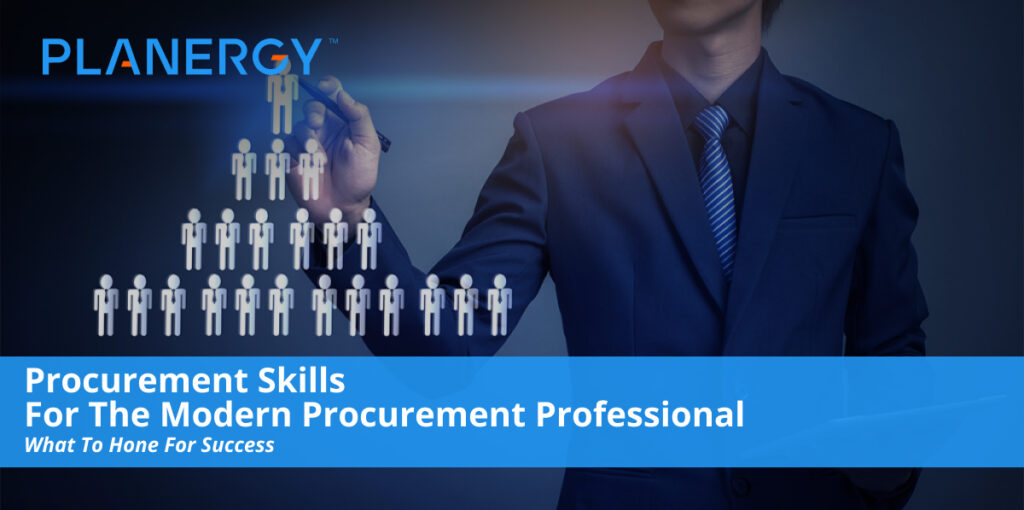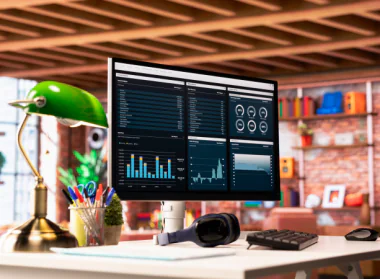If you’re interested in becoming a professional or want to develop your skills, there are important skills to focus on to help you capitalize on potential opportunities.
Even if you feel like some of these skills come naturally to you, it never hurts to brush up. So, here, we’ll talk about the top competencies and skills that will help you when it’s time to interview for your dream procurement job.
If possible, build out a portfolio with samples of your work attached to each of these skills. That’s better than trying to cram it all into your resume.
If you have prior experience in procurement or related industry, this, of course, will be helpful in your job search.
Use the references from those jobs to build on the competencies and skills we cover. Of course, your knowledge is the primary thing, but certain key skills and competencies are essential, too.
Financial Skills
An essential part of procurement is the financial element. If you have every other crucial skill but lack the financial acumen to handle evaluation, you likely won’t be offered a job.
Expect the interviewer to judge your skills based on how you’ll strategize a plan for a business, as well as your response to metrics and reports.
You have to be able to demonstrate that you understand the numbers, deeper than basic pricing, and the elementary concept that you have to spend less money than the company brings in through revenue streams.
Negotiation Skills
Good negotiation skills are vital for many professionals, but that’s especially true in the procurement industry. You’ll be working with suppliers to get a mutually beneficial deal, which means you need to consider savings, strategy, and your overall relationship.
Negotiation skills also play a role in supplier relationship management, your relationships with fellow employees and stakeholders, as well as day to day interactions.
Analytical Skills
Every day in our personal lives, we have to find solutions to common problems. Life generally doesn’t get too difficult if you fail to come up with an effective solution right away.
But in the professional arena, especially for the procurement industry, the lack of analytical skills can be detrimental. If you have strong analytical skills, you’ll be ahead of other potential candidates for the same position.
Here are a few things you can do to strengthen your skillset:
- Learn more about how things work. Finding solutions is only part of the equation. It’s always a good thing to figure out a solution, of course. But dig deeper and try to figure out how things actually work. By understanding more about how things work, you’ll stimulate your mind, and improve your thinking skills.
- Play brain games. Things like Sudoku, crossword puzzles, and chess are fun ways to stimulate your brain and exercise those skills.
- Be more observant. In today’s world, we can get so distracted by our devices that we fail to see what’s going on in the real world around us. Take a walk outside. Pay attention to the sights, sounds, and smells. How does the ground feel against your shoes? How bright are the flowers? What does the sky look like today? The more details you can note, the better. Make it a point to practice being observant for a few minutes everywhere you go. The more you do it, the easier it will become to notice minor details and nuances.
- Read more books. The more you read, the more you learn. You don’t have to read about things that bore you. It can even be fiction you enjoy. If you make reading a chore, you won’t want to do it. It’s not the subject matter that really matters much, as much as it is the act of reading and learning.
- Ask more questions. Curiosity helps us learn and strengthen skills. Talk to friends, family, coworkers, and industry experts. Keep your sense of curiosity and desire to learn strong.
- Practice problem-solving. Every problem has a solution. Visualize the solution and the way you’d present it. Find practice problems online to work with to strengthen those skills.
Communication Skills
Communication, both written and verbal, is vital for personal and professional life. Procurement professionals have to be able to clearly understand and communicate business needs, supplier expectations, and maintain positive relationships.
In a world where requests for quotations and requests for information have been the industry standard, we are starting to see a new trend.
Moving to a more collaborative approach with things like Request for Partner and Request for Solution aims to better align stakeholders and suppliers in the big process.
The collaborative methods are helpful for organizations who want to move to value-based business models such as vested or performance-based agreements.
Project Management
Professionals in any industry need to be skilled in project management, and the procurement industry is no different. You must be able to effectively initiate, plan, execute, control, and close projects.
Within project management, you focus on developing goals, timelines, and more, with the end goal being achieving these specific goals within the established timeline, and within the established budget constraints. If you can finish a project on time and on budget, you’re ahead of the game.
Category Management
Category management aims to organize categories within a business’ procurement strategy.
The purpose is to help the business save money and invest in areas that will promote growth.
To be successful, the results have to be in line with what customers expect.
Procurement professionals must be able to understand what customers want, where they want it, and when they want it.
Strategic Management
In industrial companies, products are manufactured and delivered specially for target markets. With strategic management skills, you have to have in-depth working knowledge and understanding of these markets. Sharing insights with companies before they start production is key.
A procurement professional with strategic management skills can consult with companies about competition, market size, industry profitability, and projected growth.
Relationship Management
Relationship management is crucial for many professionals, including procurement professionals. You must be able to maintain ongoing relationships with suppliers and your organization’s customers.
Whether you’re in the B2B or B2C space, strong relationship management helps to meet customer expectations, which fosters loyalty.
For successful procurement, you need certain areas of knowledge, but you also have to have soft skills to make everything easier.
Stakeholder Management
Stakeholder management involves connecting with all key stakeholders, both internal and external. For effective business operations, you must be able to communicate with them and figure out their needs and goals.
From there, you have to determine how you can engage and influence them to get the desired outcome.
There is no universal approach to stakeholder management that works for all organizations. For organizations that rely on more strategic procurement business models, the need for stakeholder management increases significantly.
Technology Skills
Understanding the current technology and being flexible enough to adapt to new technologies for business growth and development is key to procurement success.
Many technological solutions are targeted at procurement, like artificial intelligence, automation, big data, machine learning, and more. The more you can adapt to technology and build it into your workflows to improve productivity and efficiency, the better.
Take, for instance, the idea of using e-procurement software, to build a paperless process for purchase requisitions that automatically convert to purchase orders once the requisition has been approved.
Professionalism
You can be competent in everything you need as a procurement professional, but if you don’t have professionalism, it won’t matter.
That’s why it’s vital to separate business from personal life and remain professional with all of your colleagues. While being friendly is one thing, keeping things strictly business will help you keep things more productive.
Result-Oriented
Everyone has their own standards – some expecting more of themselves than others. If you want to be successful in the procurement industry, you have to be focused on results.
And to ensure you’re working hard enough, it helps to benchmark against industry standards.
If you can prove that you have the ability and desire to surpass those targets against the normal standard, you’ll be more likely to secure a position as a procurement manager, or a more senior-level position like chief procurement officer.
As businesses continue to grow and find ways to get more done with less, the procurement function will continue to expand and become a more valued area of business. Now is a great time for those enthusiastic about professional development and procurement to get involved.
If you want to make your mark and make a name for yourself in the industry, don’t wait to tackle the complex supply chain management issues. Work to improve your procurement skills and competencies now, and you’ll be in a much better position tomorrow.




